Finding local astronomy mentors is easier than you might think. Join astronomy clubs for personalized guidance, attend star parties to connect with enthusiasts, explore online communities like AAVSO forums, tap into university astronomy programs, and network at astronomical conferences. Each approach offers unique opportunities to connect with experienced stargazers who can help you navigate the universe. The celestial journey becomes more rewarding when you have knowledgeable guides by your side.
Connecting With Astronomy Clubs and Societies
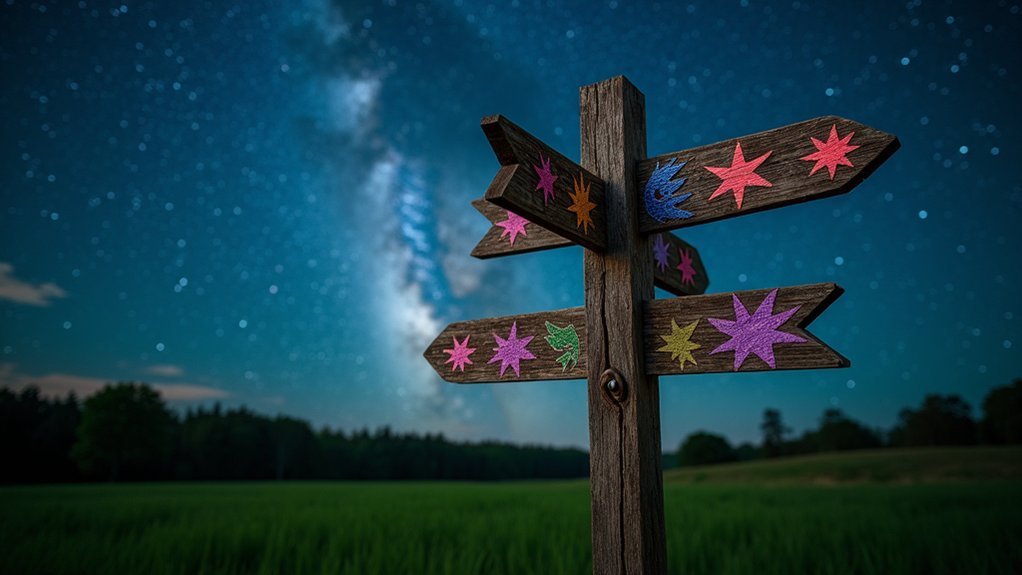
When you’re looking to develop your astronomy skills, local astronomy clubs offer one of the most direct paths to finding knowledgeable mentors.
These organizations typically hold regular meetings where you’ll meet enthusiasts keen to share their expertise and guide newcomers.
Astronomy clubs frequently organize public outreach events that create natural opportunities to connect with potential mentors who are passionate about teaching.
While observing the night sky together, you can learn techniques and receive personalized guidance impossible to get from books alone.
Most clubs offer structured mentorship programs that pair beginners with experienced astronomers, accelerating your learning curve.
You’ll also gain access to educational workshops and specialized resources that aren’t available elsewhere.
The collaborative environment within astronomy clubs fosters relationships that can develop into valuable long-term mentorships.
Attending Star Parties and Public Observing Events
Beyond formal club membership, star parties and public observing events offer ideal settings to connect with potential astronomy mentors. These outreach programs, like those hosted by the Houston Astronomical Society, create memorable “Oh, Wow!” moments for newcomers while facilitating natural connections with experienced astronomers.
| Event Type | Mentoring Opportunities | Best For |
|---|---|---|
| Star Parties | One-on-one telescope guidance | Hands-on learning |
| Public Observes | Q&A with knowledgeable volunteers | Visual astronomy |
| HAS Events | Meeting dedicated astronomy educators | First-time telescope users |
| Coalition Events | Access to diverse astronomy groups | Finding local connections |
| Observatory Nights | Learning from professional astronomers | Advanced techniques |
You’ll find these gatherings particularly valuable because they’re relaxed environments where you can ask questions freely. Many seasoned astronomers actively seek newcomers to share their passion, making these events perfect for discovering mentorship opportunities in your area.
Exploring Online Astronomy Communities

While in-person connections remain valuable, online astronomy communities offer an equally rich landscape for finding mentors. The AAVSO forums connect you with experienced astronomers who are often interested in volunteering their knowledge to help newcomers navigate the cosmos.
Local astronomy clubs maintain active online presences where you can find mentors who share your specific interests. These digital platforms frequently announce public events and discussion opportunities.
Social media groups dedicated to astronomy feature seasoned stargazers enthusiastic to provide guidance and support.
Resources like Night Sky Network help you discover mentorship programs in your area, with calendars highlighting opportunities to connect with experienced astronomers.
Don’t overlook astronomy blogs and websites—they’re goldmines for finding individuals passionate about mentoring the next generation of astronomers.
Leveraging University and Observatory Programs
Academic institutions represent one of astronomy’s most accessible gateways for finding dedicated mentors. Many universities with astronomy departments offer structured mentorship programs that pair you with faculty or graduate students who can guide your observational techniques and research projects.
Local observatories provide excellent opportunities through their outreach initiatives. At public star parties and educational events, experienced astronomers keenly share knowledge with newcomers. The George Observatory, for example, welcomes volunteers who can connect with seasoned astronomers for hands-on experience.
Observatories offer astronomy’s living classrooms—where passion for celestial knowledge flows freely from expert to novice.
To maximize these resources, please contact astronomy clubs affiliated with universities or observatories. These connections often lead to meaningful mentorships with experienced members.
Additionally, attend workshops and public lectures at observatories where presenters are typically enthusiastic about fostering new talent in the field.
Building Relationships at Astronomical Conferences
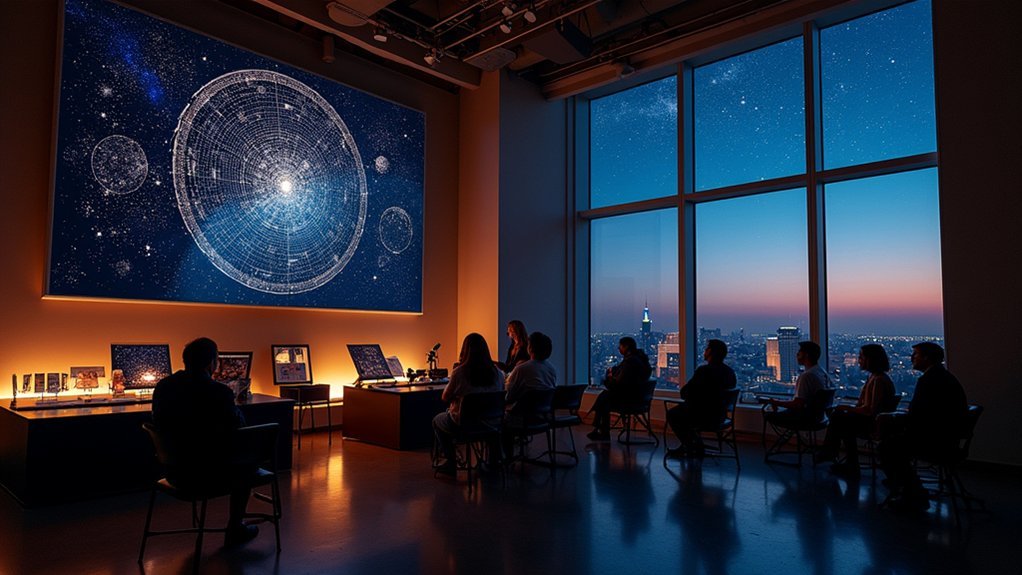
Astronomical conferences serve as ideal hunting grounds for finding potential mentors who can accelerate your stargazing journey.
As a new observer, target sessions specifically focused on mentorship and networking to exchange contact information with experienced astronomers.
Don’t just attend presentations—participate in hands-on workshops where collaboration naturally occurs.
The Astronomical Society and other organizations often host these interactive opportunities that connect beginners with seasoned professionals.
Take advantage of social events and breaks for informal conversations that can lead to meaningful mentorship connections.
Use conference apps and social media to identify speakers who share your interests, then approach them directly.
Remember to follow up after the conference with personalized messages to those you’ve met, expressing your interest in maintaining the connection and potentially developing a mentoring relationship.
Frequently Asked Questions
What Astronomy Equipment Should Beginners Invest in First?
You’ll want to start with a quality pair of binoculars, then consider a beginner telescope with sturdy mount. Don’t forget a red flashlight, star charts, and a smartphone app for night sky navigation.
How Can Teenage Astronomy Enthusiasts Find Age-Appropriate Mentorship?
You’ll find great mentorship through local astronomy clubs, planetariums, science teachers, online forums, and university outreach programs. Don’t hesitate to join youth astronomy groups where you’ll connect with like-minded peers and experienced adults.
Are There Astronomy Mentorship Programs for Underrepresented Groups?
Yes, you’ll find dedicated astronomy mentorship programs for underrepresented groups through organizations like SACNAS, NSBP, and NASA’s MUREP. College astronomy departments and observatories also offer targeted mentorship opportunities for diverse students.
What’s the Typical Cost Associated With Astronomy Mentorship Programs?
Many astronomy mentorship programs are free, especially through universities and clubs. You’ll find some professional programs cost $50-$300, but scholarships often exist for underrepresented groups. Don’t let finances stop your stargazing journey!
How Do Mentorship Relationships Typically Evolve Over Time?
Mentorship relationships typically evolve from structured learning to collaborative partnership. You’ll start as a student, then gradually gain independence as you develop skills, eventually becoming colleagues who share knowledge and possibly form lasting friendships.
In Summary
Finding a mentor doesn’t have to be rocket science. Whether you’re connecting with local clubs, attending star parties, participating in online forums, tapping into university resources, or networking at conferences, remember that astronomers love sharing their passion. Don’t be shy—reach out with specific questions and genuine enthusiasm. With persistence, you’ll soon have a knowledgeable guide helping you navigate the cosmos.

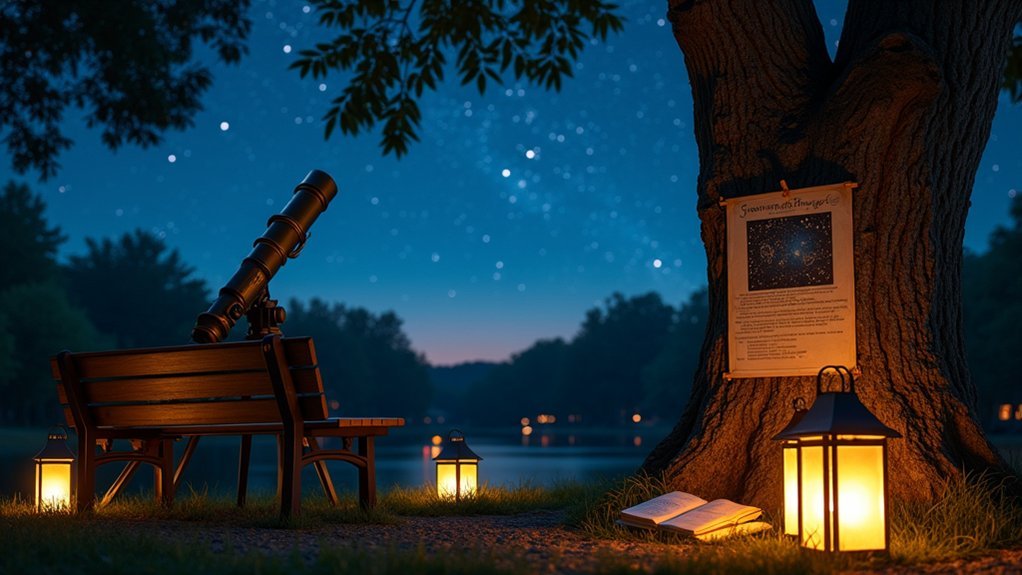

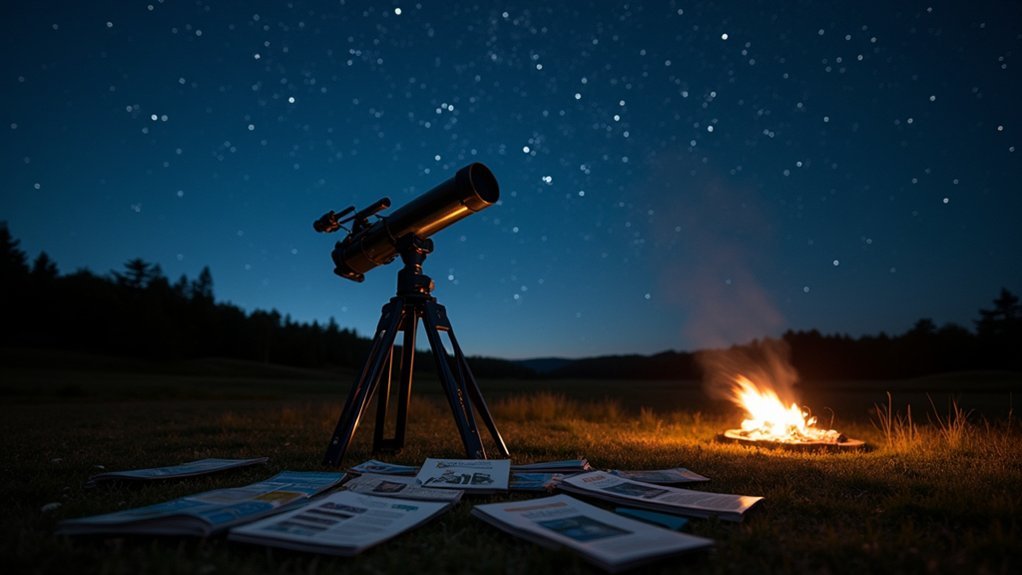
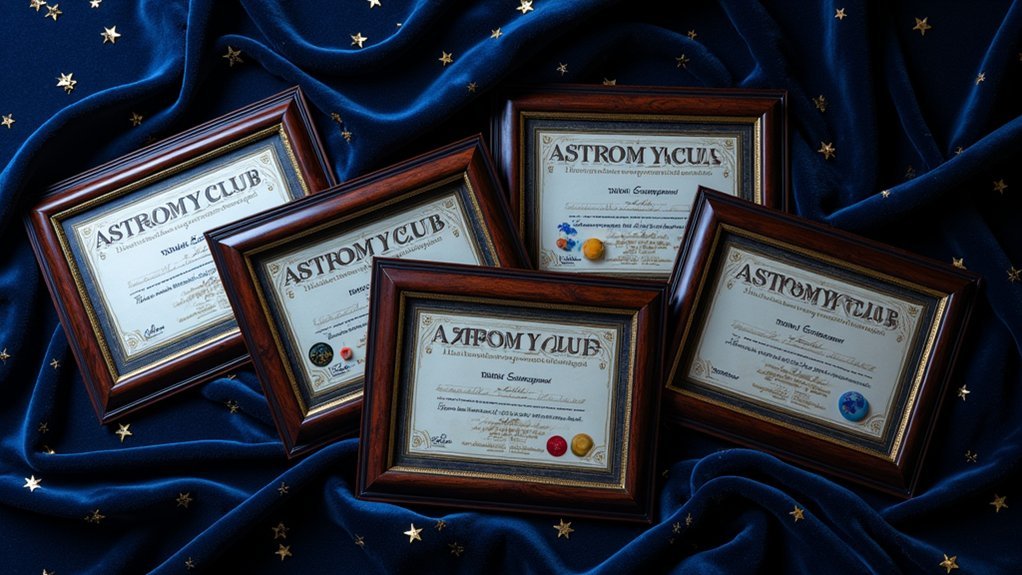
Leave a Reply